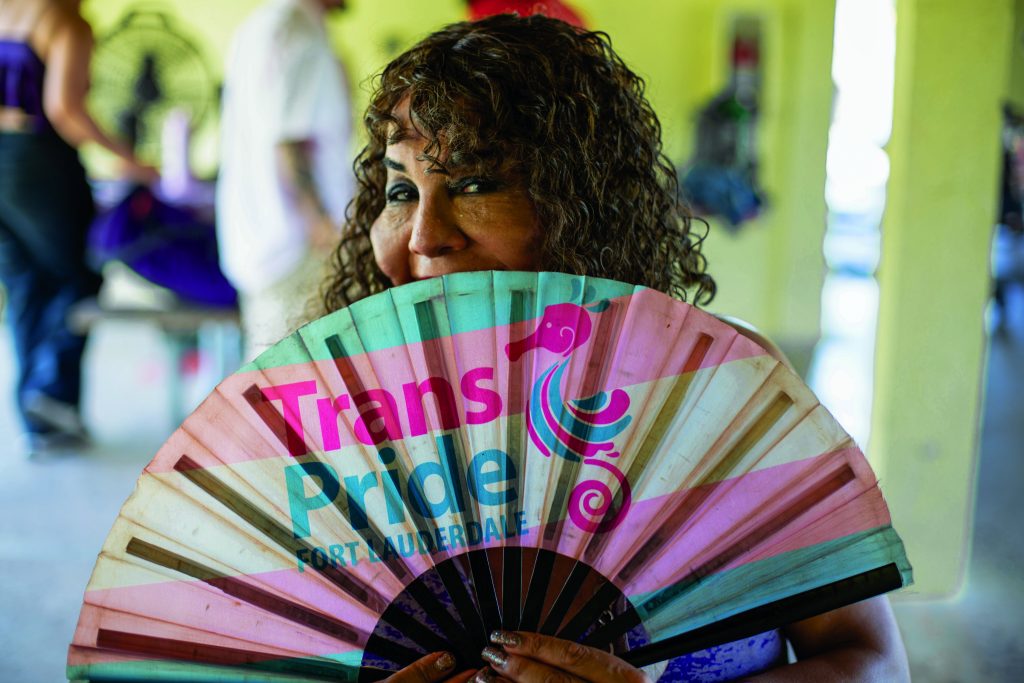Pride vs. Prejudice: Anti-LGBTQIA+ laws impact teen mental health
By Kaitlyn Torres
John A. Ferguson Senior High School/ Montage
Two years after Florida began launching a series of legislative measures and state guidelines prohibiting the instruction of gender and sexuality in schools, students who identify as LGBTQIA+ say they are experiencing increased discrimination, isolation and depression.

“People are more worried about my identity than they are about school subjects,” said Aiden Cordero, a recent graduate of Frank W. Springstead High School near Tampa. “I feel like people perceive me more as a trans woman than an actual student.”
Cordero, 18, said she has identified as a transgender woman since her teenage years. Throughout high school, she recalled being the victim of harassment from her peers, often avoided in the halls or called derogatory names in regard to her expression of gender.
“There’s been a heightened sense of this helplessness and hopelessness,” said Natasha Poulopoulos, a licensed pediatrics psychologist specializing in LGBTQIA+ care in Miami. “Even if they aren’t LGBTQIA+, they fear about how someone in their life could be affected by these laws.”
The passing of Bill HB 1557 — otherwise known as Florida’s “Don’t Say Gay” law — in 2022 prohibited any classroom instruction on sexual orientation and gender identity in grades kindergarten through third grade and provided further that such instruction was permitted in subsequent grades only if age and developmentally appropriate. A second bill, HB 1069, which went into effect in 2023, added more provisions – banning books that feature couples of the same sex and dismissing one’s preferred pronouns.
The enactment of HB 1521, which also was passed 2023, requires that the use of facility restrooms is exclusive to one’s assigned gender at birth.
As a result of this law, Cordero said two classmates reported her for using the women’s restroom. Though her counselor originally sided with her, she said she was ultimately given a suspension for violating the terms of the legislation.
In the past decade, a wave of anti-LGBTQIA+ legislation has cascaded throughout the country. According to the American Civil Liberties Union, there are more than 500 anti-LGBTQIA+ bills under consideration in at least 40 states.
“There is distrust in a system that is supposed to protect kids,” Poulopoulos said. “We know from data that affirming and inclusive care improves mental health, yet we’re seeing laws that are doing the exact opposite.”
Mental health experts say the laws are discriminatory and make the LGBTQIA+ community more vulnerable to mental health issues. An investigation administered by the Alberta Civil Liberties Research Center in Canada found that trans- gender students are more receptive to bullying and exclusion by law than any other minority. In a 2022 study, the Trevor Project, a non-profit organization that specializes in LGBTQIA+ suicide prevention, found that roughly 45 percent of queer teenagers consider suicide.
This statistic is in part a result of the lack of acceptance LGBTQIA+ individuals receive. Members of the community are also more susceptible to disorders such as anxiety and depression, clinical experts say.
“I see a heightened level of depression,” Poulopoulos said. “The fear of being outed and what the consequences will be are primarily negative, whether it’s coming from peers, family, or a bigger system.”
Pridelines, an LGBTQIA+ support group based in Miami, sheds light on LGBTQIA+ issues.
In June the group hosted 25 events in celebration of Pride Month and is developing a safe house for homeless LGBTQIA+ people under the age of 26.
“Pridelines mission is to support, educate and empower South Florida’s LGBTQIA+ youth and community,” said Daniel Molloy, director of Prideline’s grants and gifts program. “Being an ally isn’t just in June,” Molloy said. “There’s an opportunity to be an ally every day.”